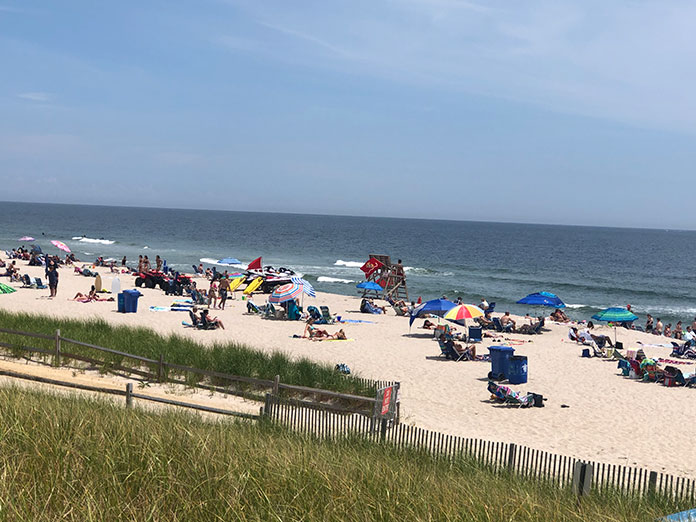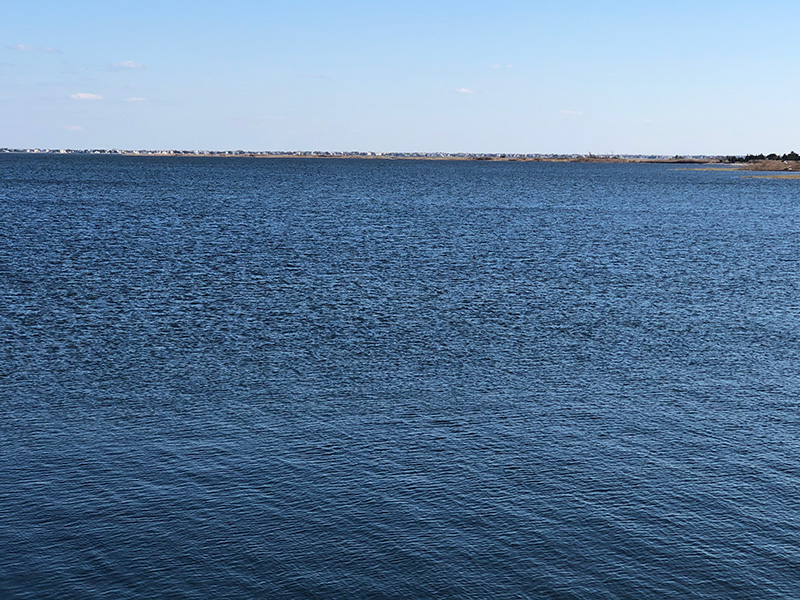
TOMS RIVER – With the summer season beginning shortly, the Ocean County Health Department (OCHD) will be testing all of the county’s public recreational bathing beaches through its Coastal Cooperative Monitoring Program (CCMP).
“People can’t wait to get back to our beautiful bathing beaches we have here in Ocean County now that the warm weather is upon us,” Ocean County Commissioner Gerry P. Little, liaison to the Ocean County Board of Health said. “Whether you are a local or a visitor, the Ocean County Health Department will ensure the only water you’re swimming in will be safe for you and your family.”
There are 67 bathing beach locations in Ocean County that are rigorously tested for quality between Memorial Day and Labor Day. The CCMP locations in Ocean County experienced a pass rate of over 95 percent in 2020. Today, technology assists the efforts in CCMP as people can see real-time water quality results at their favorite beach venue at njbeaches.org and ochd.org.
“The OCHD wants everyone to experience and enjoy the more than 40 miles of beautiful Ocean County beaches and other recreational waterways in a safe and healthy environment,” Daniel Regenye, OCHD Public Health Coordinator/Health Officer said. “The CCMP is such an important quality control mechanism that is vital to tourism, ecology, species habitat and our robust fishing industry.”
The water is tested for two types of bacteria – enterococcus and E.coli. If the results come back with higher than acceptable levels, the water is immediately retested and the town notified.
After the second high reading, the beach is closed and tested daily until bacteria levels return to normal.

Regenye explained that if heavy rainfall occurs, then beach closures may happen. Water runoff washes animal waste, lawn care products and other bacteria into the water.
Stay healthy and safe while spending a day at the beach by following these simple steps the OCHD recommends:
- Continue to observe any COVID-19 safety precautions; for specific beach openings, safety protocols and capacity limitations please check with local or municipal authorities.
- Do not dispose of masks, trash, pet waste, or dirty diapers on the beach.
- Observe swimming advisories; do not enter the water at a beach under a swimming advisory.
- Avoid swallowing water when swimming; natural waters may contain disease-causing organisms that can cause gastrointestinal illness if swallowed.
- Avoid swimming for a few days after heavy rainfall; bacteria levels are likely to be high and disease-causing organisms are more likely to be present after rainfall due to pollution from land runoff and other sources.
- Prevent direct contact of cuts and open wounds; natural waters may contain disease-causing organisms that may cause skin infections.
- Do not swim if you are ill or have a weakened immune system; some organisms are opportunistic and may only cause illness when you are already ill or your immune system is weakened.
- Shower with soap after swimming; showering helps remove potential disease-causing organisms.
- Swim away from fishing piers, pipes, drains, and water flowing from storm drains onto a beach.
The Centers for Disease Control and Prevention (CDC) has reported that there’s no evidence showing the COVID-19 virus being transmitted through water.
Daily water quality reports for every beach we monitor can be found at ochd.org. The OCHD also offers a hotline available 24 hours a day, 7 days a week for up to the minute reports which can be obtained by calling 732-341-9700 ext. 7776 or at 1-800-342-9738, ext. 7776.






